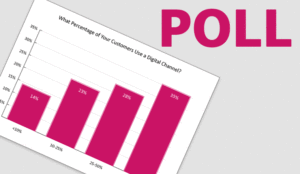Stephen Ball of Aspect talks us through changing customer preferences and the impact this has on channel shifting.
Most customer-focused businesses are aware of channel shift, and many are currently grappling with how to make it a success. You want to encourage your tech-savvy customers to use newer, more efficient channels, but you don’t want to irritate your loyal followers in the process.
Recent research we carried out here at Aspect gives some cause for optimism in this respect. Of the 2,000 UK consumers we polled, 67 percent are comfortable with moving beyond traditional channels of interaction – such as telephone – in favour of more modern choices of communication.
All good so far, but we also found evidence to suggest that channel shift should only be done with the best interests of your customers in mind.
Just under half (45 percent) of consumers like to use a combination of traditional and modern channels when getting in touch with customer service, and just over a fifth (22 percent) prefer more modern methods like webchat.
Again, this all sounds fairly promising, but this stat is the kicker: a third (33 percent) still rely on traditional channels for the majority of their queries.
What’s clear from this is that consumers have complex preferences when it comes to contacting customer service, and a desire for channel choice remains strong.
Thinking about it this way, it’s crucial that you’re nuanced in your approach to channel shift, which means clearly communicating the benefits of any new channel before they’ll be widely accepted.
Looking at the survey again adds some further context. 42 percent said they would accept a shift to a new channel, but only if a company can give them concrete evidence that it’s more effective than a traditional channel.
30 percent would also prefer it if organisations respected their choice of channel, rather than forcing them into using a new method.

Stephen Ball
From here, the message becomes fairly simple: consider the complex needs of your customers. Take steps to comprehensively explain any changes and their benefits, and provide strong proof wherever possible of the success of new methods, such as examples of queries being answered faster through chatbots or online self-service.
Channel shift will be key to the future of customer service, but winning the hearts and minds of your customers is crucial!
Author: Guest Author
Published On: 16th Apr 2019
Read more about - Guest Blogs, Alvaria















